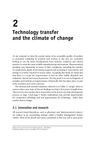4 citations,
January 2017 in “International Journal of Dermatology” Scalp cooling can help reduce hair loss during chemotherapy.
14 citations,
April 1978 in “International Journal of Dermatology” Antiandrogens can treat acne, hirsutism, and seborrhea by reducing sebum production and androgen action.
 2 citations,
November 2012 in “InTech eBooks”
2 citations,
November 2012 in “InTech eBooks” The document concludes that sex hormones are crucial for mammalian reproduction, health, and behavior, and require more research for therapeutic use.
2 citations,
March 1994 in “Journal of the European Academy of Dermatology and Venereology” White piedra can be effectively treated with 2% miconazole nitrate lotion.
37 citations,
December 2005 in “International Journal of Clinical Practice” Choose acne treatments based on appearance, lesion type, severity, scarring, and mental impact.
 10 citations,
May 2012 in “Cell Adhesion & Migration”
10 citations,
May 2012 in “Cell Adhesion & Migration” ILK and ELMO2 help cells move and stick together, important for wound healing and hair growth.
20 citations,
November 2002 in “Journal of the European Academy of Dermatology and Venereology” Lichen planopilaris may be linked to autoimmune thyroiditis.
22 citations,
May 2005 in “Journal of the European Academy of Dermatology and Venereology” People with Down syndrome are more likely to have alopecia areata and need regular skin check-ups.
 3 citations,
October 2002 in “Journal of The American Academy of Dermatology”
3 citations,
October 2002 in “Journal of The American Academy of Dermatology” The conclusion is that the hair loss in the patients was likely due to alopecia areata, not boron exposure.
22 citations,
August 2006 in “Journal of the European Academy of Dermatology and Venereology” Twice-weekly 5 mg betamethasone helps hair regrowth in alopecia areata.
 4 citations,
March 2006 in “Archives of Dermatology”
4 citations,
March 2006 in “Archives of Dermatology” The conclusion is that dermatologists can improve women's skin health but must overcome cultural and economic barriers to do so.
2 citations,
November 2020 in “Hair transplant forum international” Exosomes might be a promising new treatment for hair loss.
 1 citations,
March 2021 in “The Journal of Sexual Medicine”
1 citations,
March 2021 in “The Journal of Sexual Medicine” The letter suggests testosterone replacement therapy might worsen COVID-19 outcomes.
August 2021 in “Journal of the American Academy of Dermatology” Hair fiber fillers make thinning hair look fuller with minimal side effects.
 1 citations,
July 1965 in “Postgraduate medicine”
1 citations,
July 1965 in “Postgraduate medicine” Most skin conditions can be managed with general medical knowledge.
2 citations,
May 2011 in “International Journal of Dermatology” A 12-year-old boy in rural south India had a rare skin condition causing hair loss and inability to sweat.
11 citations,
March 2002 in “Pediatric Dermatology” Temporal triangular alopecia is a non-scarring hair loss seen in some Asian children.
8 citations,
May 2005 in “Australian veterinary journal” A Tibetan Terrier had recurring seasonal hair loss for three years.
9 citations,
July 1982 in “International Journal of Dermatology” A 31-year-old man's hair turned white suddenly, likely due to alopecia areata.

The document concludes that a Quality Management System is crucial for maintaining product quality through innovation and proper technology transfer in the pharmaceutical industry.
 June 2012 in “Springer eBooks”
June 2012 in “Springer eBooks” Eating disorders can cause various hair problems, and while hair loss in these disorders is linked to metabolic syndrome, treatment focuses on specific medications and lifestyle changes for the syndrome.
 42 citations,
January 1998 in “BioDrugs”
42 citations,
January 1998 in “BioDrugs” Azathioprine's effectiveness and safety require careful monitoring and more research, especially regarding its use with corticosteroids and the role of TPMT status in patients.
 20 citations,
May 2011 in “Cancer Biology & Therapy”
20 citations,
May 2011 in “Cancer Biology & Therapy” Finasteride may improve prostate cancer treatment outcomes.
 13 citations,
January 2017 in “Experimental Dermatology”
13 citations,
January 2017 in “Experimental Dermatology” New findings improve our understanding of how wounds heal and can be applied to medical treatments.
5 citations,
June 1993 in “Pediatric dermatology” Monilethrix Syndrome causes fragile, beaded hair that breaks easily and needs early diagnosis for better care.
 5 citations,
January 2009 in “Dermato-endocrinology”
5 citations,
January 2009 in “Dermato-endocrinology” ADAM 10 and ADAM 12 proteins are involved in different stages of hair growth and could be targets for treating hair disorders.
Some alternative treatments for vitiligo show promise but need more research to confirm their safety and effectiveness.
1 citations,
March 2005 in “SKINmed/Skinmed” Oral contraceptives can help treat skin issues like acne and excess hair.
5 citations,
March 2005 in “Pediatric dermatology” Keratosis Follicularis Spinulosa Decalvans is a rare genetic disorder causing skin and hair issues, often inherited through the X chromosome.
 1 citations,
September 2015 in “Dermatologic Therapy”
1 citations,
September 2015 in “Dermatologic Therapy” Platelet-rich plasma can help treat hair loss condition called alopecia areata.












